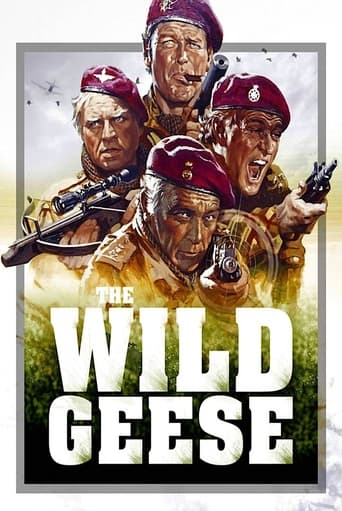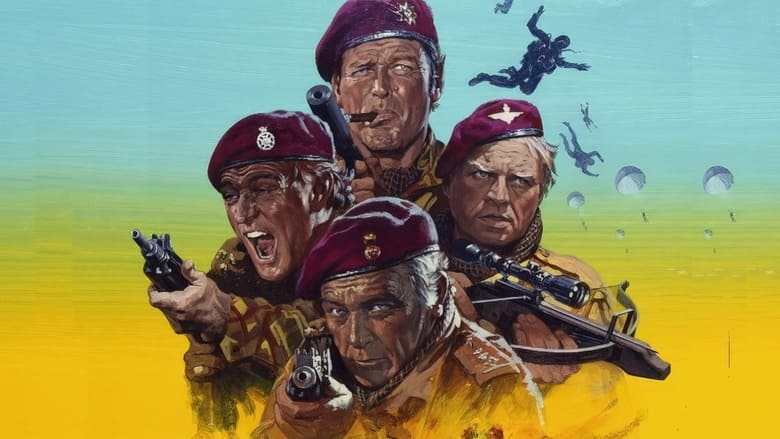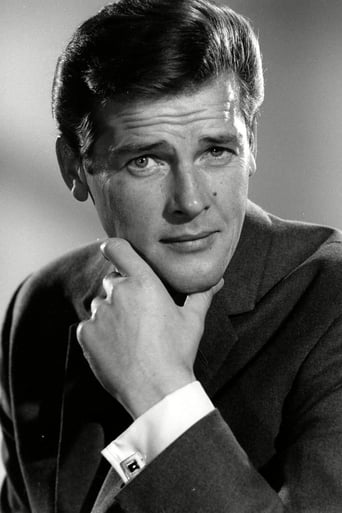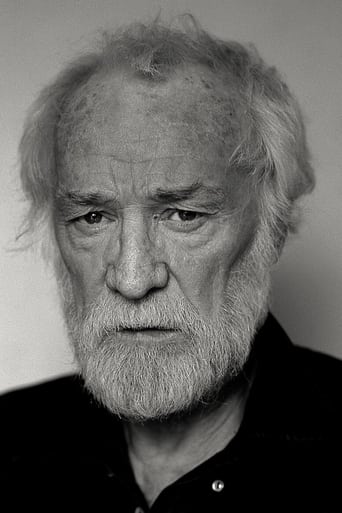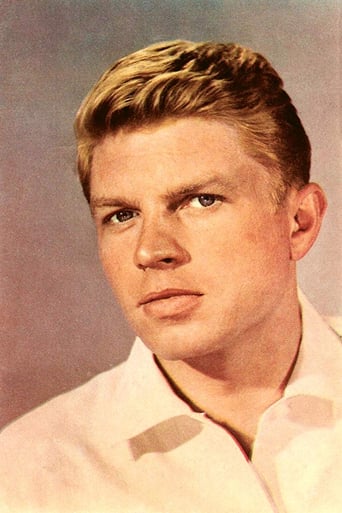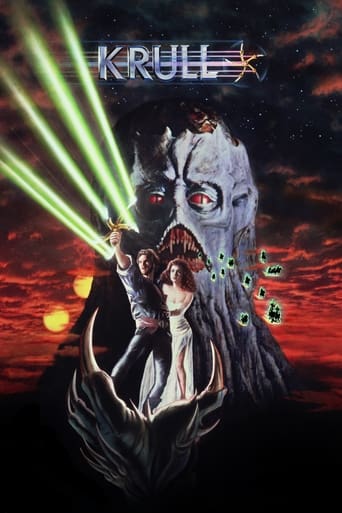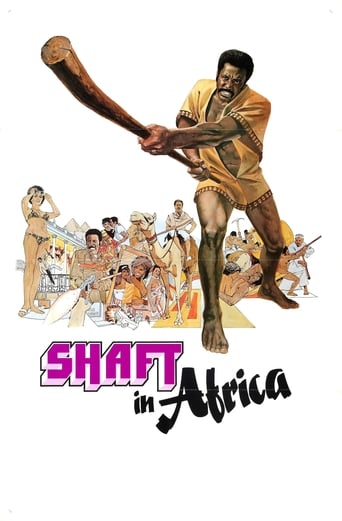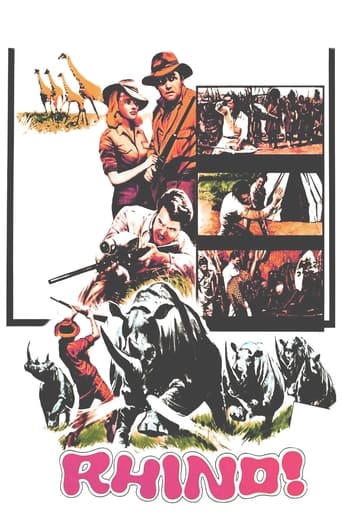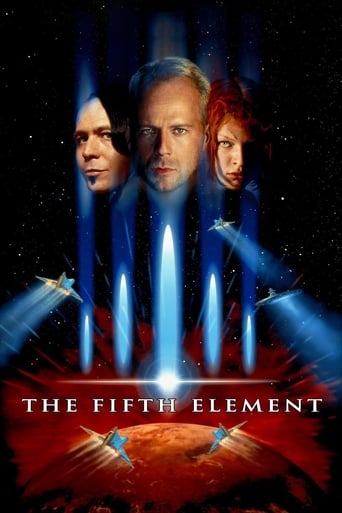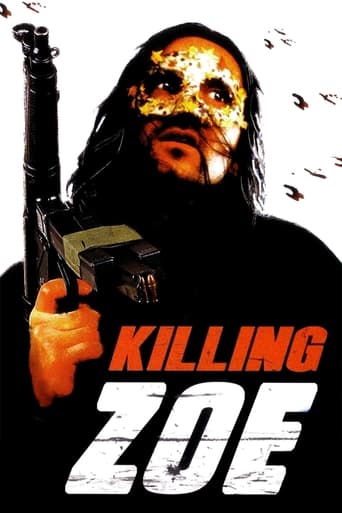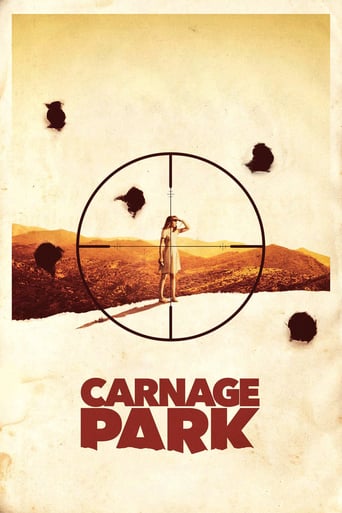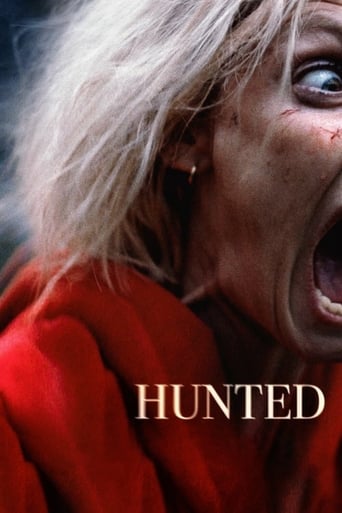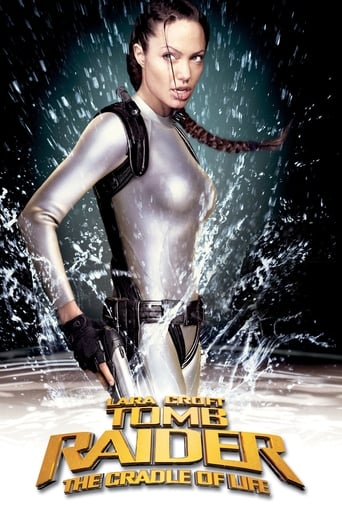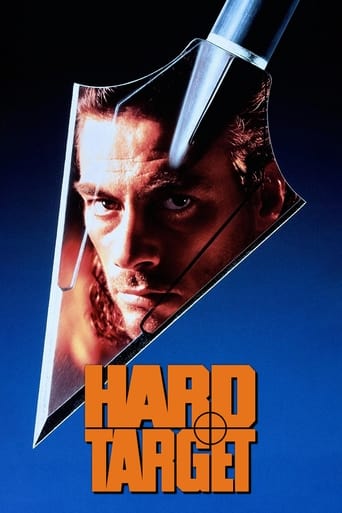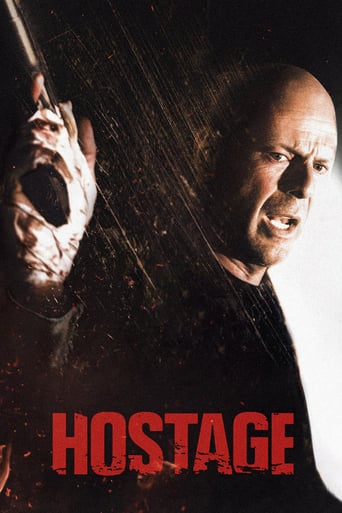The Wild Geese (1978)
A British multinational company seeks to overthrow a vicious dictator in central Africa. It hires a band of (largely aged) mercenaries in London and sends them in to save the virtuous but imprisoned opposition leader who is also critically ill and due for execution. Just when the team has performed a perfect rescue, the multinational does a deal with the vicious dictator leaving the mercenary band to escape under their own steam and exact revenge.
Watch Trailer
Cast


Similar titles
Reviews
Movie Review: "The Wild Geese" (1978)A 1970s action thriller enriched with some political dispute material; Actor Richard Burton (1925-1984) presents himself in one of his most accomplished roles, leading fellow actors Roger Moore (1927-2017), Richard Harris (1930-2002) among others into battle on Central African grounds to break out a disposed African President. The action comes in paced doses. Yet the spectator needs to be prepared to engage into some former hard-boiled attitude variations, which may not be all too contemporary anymore. Nevertheless the mediocre-to-decent direction of Andrew V. McLaglen (1920-2014), a fairly driven adapted script by Reginald Rose (1920-2002) and the powerhouse scene-owning acting by Richard Burton will bring two-hour-entertainment to the motion picture tolerant and world-siding knowledgeable audience.© 2017 Felix Alexander Dausend (Cinemajesty Entertainment LLC)
"The Wild Geese" is a wild movie about a force of mercenary soldiers who are assembled to free a deposed leader of an African nation. It's a fictional story, based on a book that was published at the same time of the movie's completion. Some of the characters and events clearly resemble real people and events. British author Daniel Carney wrote about the tribulations of some African nations in the mid-20th century as they were coming out from under colonial rule. He lived in Rhodesia (former British colony Southern Rhodesia), which later became Zimbabwe. Three of his novels were made into movies. Carney died of cancer at age 43 in 1987, while living in Zimbabwe. Carney wrote this story based on rumors of a 1968 landing of a mysterious airplane in Rhodesia. It supposedly contained mercenary soldiers and an African president, thought to have been Moise Tshombe (Democratic Republic of the Congo) who was dying. The movie has an end note about that. This film was a project of British producer Euan Lloyd, who wanted to make a realistic film about some of the conflicts taking place in Africa. As the film shows, he assembled a star cast. The film was shown first on June 28, 1978, in South Africa where it was met with much approval and accolades by native Africans. For the Royal charity premiere in London on July 6 of that year, some Brits demonstrated against the film.The movie deviates from the book in places. Rafer Janders (played by Richard Harris) in an American playboy in the book, but a Brit in the movie. And the Mafia has a contract on him for killing the son of one of the mob leaders. In the movie, that's attributed to Shawn Fynn (played by Roger Moore). The book has much more on the physical training. Some of the men despise Reg. Sgt. Maj. Sandy Young (played by Jack Watson) and try to kill him; but he foils their plan. In the movie, he's tough, but there's no dissension among the troops. The book has the C-130 drop the force in the hills near Albertville (now Kalemie), a town on the eastern edge of DROC. It sits on the western shore of Lake Tanganyika. Fynn's main parachute fails to open but he uses his reserve chute and lands safely. Some other things are different, including the outcome. But this is a very good action thriller that gives a realistic look at a type of culture that continues somewhat to this day. That is, mercenary forces hired to do war-type raids, battles, and other actions, mostly in countries torn by civil war or unrest, or that are being terrorized. It has some interesting twists having to do with trust of those who hire mercenary forces. The film ending should please most audiences. Modern audiences who may not know much history about Africa may be interested in some background. A little history helps put this film into context of the time, place and culture. From the mid-19th to the early 20th century, most of Africa was colonized. Only two countries – Liberia and Ethiopia, never came under another nation's flag. The remaining 48 of 50 continental modern African nations came under the rule of seven European nations. England and France together held about two-thirds of the nations and of the area. France occupied all or parts of 17 modern African nations, and England was in all or parts of 16 modern African states. Germany ruled all or parts of six modern states. Italy and Spain each had three African colonies. Portugal had two and Belgium had one. That was the Democratic Republic of Congo, which was called Zaire from the 1960s to late 1990s. It is the place source for this story. Decolonization of most of Africa began after the end of World War II. In 1960 alone, 17 African nations gained their independence. By 1990, all of the continent was under self-rule, but not all were democracies. There was no one process for decolonization. It was peaceful in some areas, and embattled in others. Some newly independent countries had stable governments. But others had civil war, revolutions and coups, or were ruled by dictators or tyrants for decades. When this movie came out in 1978, Apartheid rules were in place in South Africa (1948-1991). Many Western nations would soon embargo South African commerce. South Africa was (and still is) the world's largest producer of chromium. This coincided with the automobile industry moving away from chrome bumpers on cars. In 1985, President Reagan imposed sanctions on South Africa, including ownership of the country's gold money (krugerrands). Efforts began in 1990 by the South African government to end apartheid, and in April of 1994, the nation had its first free election. African history is much more complicated. The Cold War had a big effect on the new, emerging Africa. European nations, especially, had economic interests there. The rise of the United Nations and influx of many new nations after World War II, especially from Africa and Southeast Asia, and other things all had a hand in forging an Africa of many diverse nations. But this short overview of the political climate of the era gives one a sense of the time, place and setting for this movie. Here's my favorite quote from this film. Regimental Sergeant Major Sandy Young is training the men in parachute landing falls (PLFs). Young, to Shawn Fynn, "That was ludicrous, sir. You are jumping from an aeroplane, not a whorehouse window. Do it again." Finn (looking at Young spitefully), "Sir!"
In concept, "The Wild Geese" resembles many other action movies; "The Dirty Dozen" immediately comes to mind, despite obvious differences. Tough veteran with a murky background is hired to assemble and train a team that will carry out a dangerous assignment; the opening interview explains the mission; the team is recruited from among the vet's old friends; the team is trained under a tough drill sergeant; and the climactic raid unfolds.A late-career Richard Buron is fine as Colonel Faulkner, the mercenary with experience and myriad capable ex-confederates. Enter Stewart Granger as Sir Edward Matherson, a stuffy Brit with ambiguous motives; Matherson secretly brings Burton to England for a dangerous mission to rescue a kidnapped African president named Limbani, sensitively played by Winston Ntshone. Burton quickly enlists Roger Moore, on hiatus from his James Bond franchise; Richard Harris; and Hardy Kruger. An old buddy of Burton, Jack Watson, is the tough drill sergeant, who gets the aging group in shape. And they all badly need the exercise, because Burton enlists his team from among the retired, the underemployed, and malcontent, and most seem too mature for the mission; they are not exactly a dirty dozen, but more an arthritic thirty. Beyond the aging leads, the rest of the seasoned cast includes Barry Foster, Frank Finlay, Kenneth Griffith, Ronald Fraser, and Jeff Corey. As expected from the distinguished names, the acting throughout more than meets the demands of an action flick. The screenplay by Reginald Rose, which was based on a novel by Daniel Carney, is riddled with such stereotypes as the fey gay man, the noble African leader, and the racist white South African. The plot is often predictable, and clichés abound from hostile wives, who tolerate their adventure-seeking husbands, to the requisite "if something happens to me" speech to a sappy fade out. The superfluous clichés and gratuitous political exchanges between Ntshone and Kruger slow the film, and the running time is a bit long at 129 minutes. However, Andrew V. McLaglen directs professionally and manages to overcome the script's weaknesses to deliver a satisfying action movie.
An action-packed story of a paramilitary group funded by a billionaire to rescue an African leader who is held captive by his enemies. Restored to his leadership position, the captive will be useful both to his country as a figure around whom competing factions can coalesce and to the billionaire's copper interests. It's a big and well-armed unit, about the size of a company, more than 100 men, all of them experienced, to be led by Richard Burton, Roger Moore, Richard Harris, and Hardy Kruger.The narrative carries a faint echo of "Objective Burma," an old Errol Flynn movie. The specialists are parachuted into hostile territory, carry out their mission without casualties, but then find themselves stuck with no exit and must schlep their way through the bush, pursued by enemies, until the few survivors are airlifted out.It's not a simple "good guys" versus "bad guys" story, like the Errol Flynn war-time film. These are, after all, mercenaries and most are just doing it for the money. There are even one or two "philosophical" exchanges about the morality of their mission and their values.There is, naturally, the usual getting-in-shape training camp scenes and the final orgasmic shoot-out. Due to editing or something, the orders issued to the men are clear enough but the execution on screen is confusing. Who's where? Why are these guys running and those guys not? Where did that bazooka come from? But the viewer must overlook the confusion of the ultimate battle because nothing else is left ambiguous. This was directed by Andrew V. McLaughlin, son of Victor, pal of John Ford, but more craftsman than poet. Every emotion, every thought, every lingering doubt, is spelled out for you, as in a kindergarten class where "A" is "A as in apple." So don't worry about having to struggle to grasp the clinical significance of it -- although if you want to think twice about mercenaries or "government contractors," as the mercenaries are called when they're working for us instead of them, you can do so. And don't be too quick to judge. The Swiss guards at the Vatican are mercenaries too.

